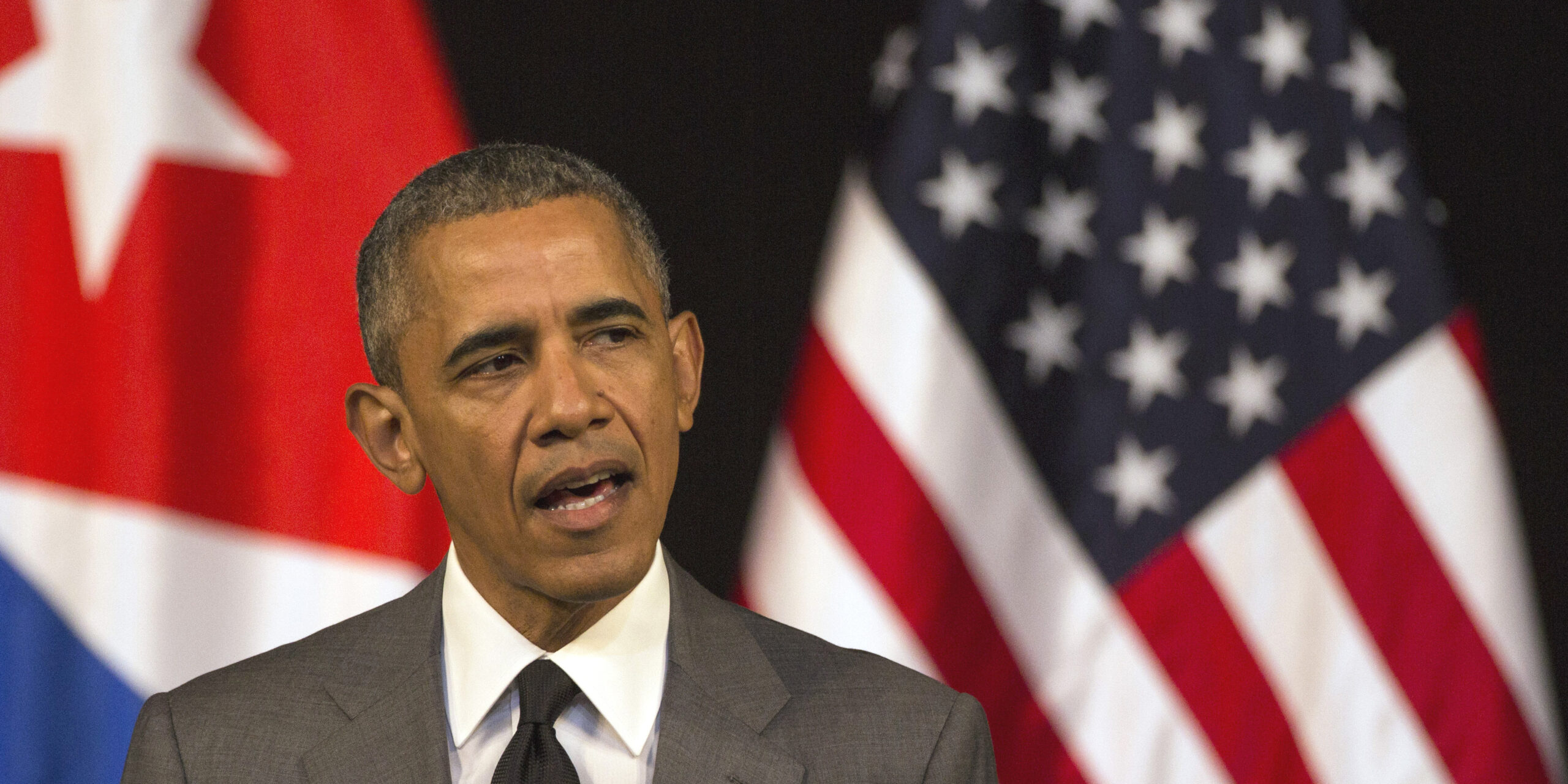Ga. Tech Project Provides Cubans Faster Access To Internet

U.S. President Barack Obama delivers his speech at the Grand Theater of Havana, Tuesday, March 22, 2016. President Obama urged Cubans to look to the future with hope, casting his historic visit to the communist nation as a moment to “bury the last remnants of the Cold War in the Americas.” (AP Photo/Desmond Boyland)
Desmond Boyland / Associated Press
President Barack Obama called on the Cuban government to expand Internet access for its citizens in a speech in Havana on Tuesday. In Cuba, less than about 5 percent of the population has open Internet access.
That’s slowly changing as the government adds a few Wi-Fi hotspots and foreign companies work to update the digital infrastructure.
But in the meantime, a Georgia Tech initiative is helping Cubans access information more quickly.
National Email
Michaelanne Dye is a doctorate student at Georgia Tech’s School of Interactive Computing. She and the school’s chair Annie Antón are of Cuban descent. Along with professor Amy Bruckman, they began researching how Cubans use the Internet in 2014.
The study was just published by the Conference on Computer-Supported Cooperative Work and Social Computing.
“What we found in the study is that it was a lot easier for people in Cuba to access email than it was for them to search Google or get online,” Dye said. “So Cuba Intercambio is like a Google search, but it all happens through email.”
Dye said loading a website can take 10 minutes sometimes. Cuba Intercambio uses the Cuban government’s email system, which is faster and cheaper than accessing the Internet on new public Wi-Fi hotspots, cyber cafes or at universities and schools.
Cuba Intercambio
During her research, Dye came up with the idea for Cuba Intercambio, which is a free, volunteer-based service she started.
“I wanted to use the findings to create something that could be useful based on their actual needs,” Dye said. “Throughout the study, I started to have participants email me. One person wanted to know about university programs in the United States; someone else had a technology question. They started using me as a proxy to search for things online.”
When Cubans send a question to a Georgia Tech email address, Dye posts it on the Cuba Intercambio Facebook group for a team of Spanish-speaking volunteers to respond. She then emails back the answer.
Internet Demand
She says it’s common for Cubans to email photos along with their login information for social media accounts to relatives outside of Cuba so that they can update their Facebook profile. She said she found the biggest barrier to Internet access in Cuba is the high cost rather than censorship.
“Cubans are really eager to get online to be able to connect with family and friends that they haven’t spoken to in years and just want access to information: entertainment, news, sports, technology updates,” Dye said. “They are a lot less concerned about talking about political issues or controversial topics.”
She said she hopes Cuba Intercambio can serve as a tool while the country transitions to greater Internet access.
“If they do indeed get more access to the Internet, I want to see how their points of view, beliefs, culture changes as a result,” Dye said. “How have things adapted and shifted in their communities, relationships, workplaces, now that people are getting access to the Internet? It’s going to provide a more in-depth, on the ground viewpoint as to what happens when a community experiences a shift like this.”
Dye said she’ll continue to track the progress of Internet use in Cuba, with visits to the country, over the next two years.
9(MDAxODM0MDY4MDEyMTY4NDA3MzI3YjkzMw004))








